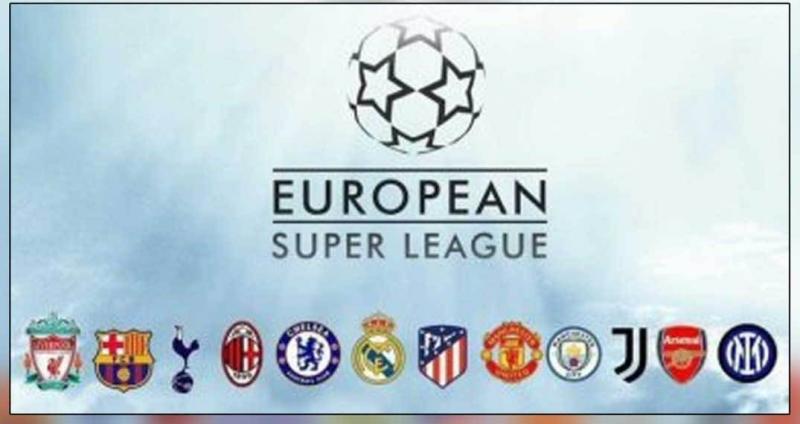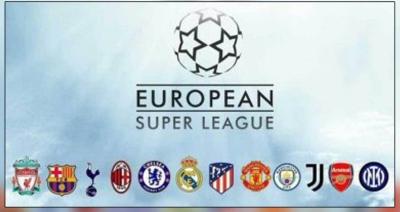After 12 major European clubs, including Real Madrid, Juventus, and Manchester United, announced the establishment of the "Super League" to compete with the Champions League, questions arise about this new tournament that has sparked almost universal rejection in the world of football. Can it achieve economic success? Will it be able to generate 10 billion euros in a few years as its promoters claim?
The European "Super League," launched by 12 major clubs on Sunday night, aims to attract revenues greater than the current Champions League, which earns 2 billion euros annually, a move that some consider an uncertain gamble. Economic expert Didier Primo states, "The financial feasibility is not guaranteed at all because we are creating a tournament from the best clubs," reminding us that if we take the EuroLeague basketball tournament as an example, "80% of the participating clubs generate a deficit," despite the high level of competition.
While NBA clubs are profitable, "that wasn't the case ten years ago when only a few clubs were financially healthy."
"Closed leagues provide a financial guarantee for investments," argues Tim Bridge from Deloitte, noting that "there’s no risk or dangers." In a financial context burdened by the global COVID-19 pandemic, "some of the 12 clubs are in a complex financial position, so they are looking for better financial stability for the future," adds Bridge.
Most of the income from the "Super League" is expected to come from broadcasting rights, but a puzzle remains as no official broadcaster or auction date has been announced. The organizers heavily rely on television broadcasting. According to the announced figures, 3.5 billion euros will be distributed among the founding clubs, with revenues expected to exceed 10 billion euros in the long term.
Didier Primo expects traditional players like encrypted channels will lose their strength, or they will not be market leaders in any case. However, there is still room for companies like Google, Amazon, or Apple to exploit. On her part, Magali Tizinas, the Managing Director of the Sportitude Group, which brings together leading economic players in France, explains: "They don't necessarily have to seek the ten billion in the old continent; they will turn, for example, to Asia."
She continued: "My concerns about this product are its scarcity. Matches between Barcelona and Paris Saint-Germain do not happen all the time. If they become frequent, they may lose value."
Can unexpected financiers join the tournament's bandwagon? According to Primo, "some partners will be interested," such as "multinational companies or economic players supported by states using the tournament to enhance their soft power."




